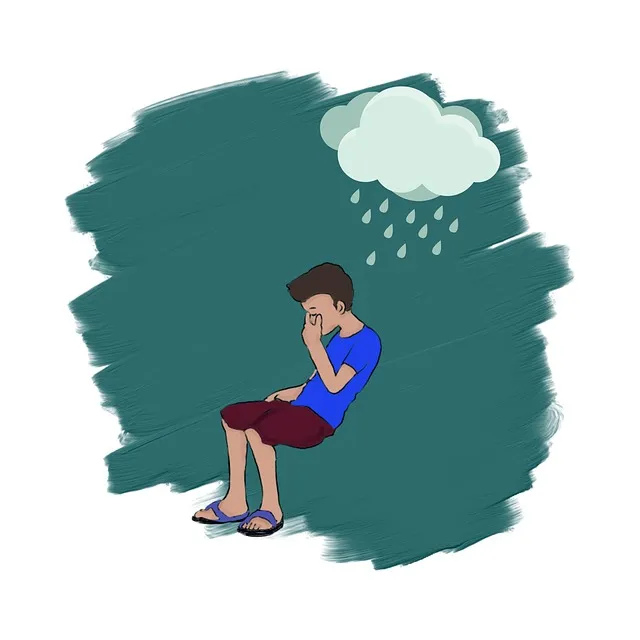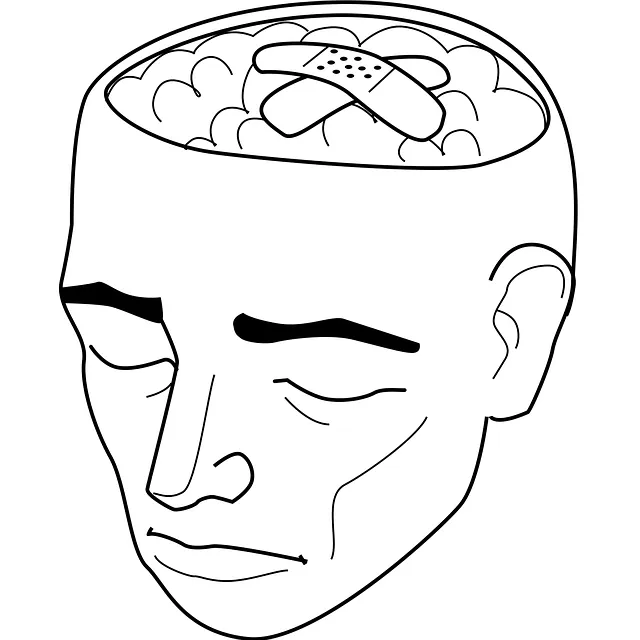The Kaiser Permanente mental health center in Colorado Springs promotes resilience through the Resourceful Resilience Model (RFM), focusing on personal resources, resilience factors, and mental health. They offer experiential learning, culturally sensitive interventions, and skill-building activities to enhance well-being. Positive reviews highlight their innovative practices, which include risk management planning and personalized programs, empowering patients to navigate life's challenges and achieve long-term emotional stability.
“Resilience is a powerful tool in the realm of mental health, and the RFM (Resilience, Flexibility, and Mindfulness) model offers a comprehensive framework for improving patient outcomes. This article explores how exercises aimed at building resilience can significantly enhance treatment, drawing from the successful implementation at Kaiser Permanente Colorado Springs. We delve into the benefits of integrating RFM techniques in mental health practice, provide guidelines for designing effective programs, and share real-world success stories, offering insights that could revolutionize care at other Kaiser Permanente mental health centers.”
- Understanding RFM: A Framework for Resilience in Mental Health
- The Role of Exercises in Building Resilience at Kaiser Permanente Colorado Springs
- Benefits of Incorporating RFM Techniques in Mental Health Practice
- Designing Effective Resilience-Building Programs for Patients
- Real-World Success Stories: Kaiser Permanente's Approach to RFM
Understanding RFM: A Framework for Resilience in Mental Health

Resilience is a cornerstone of mental health and well-being, enabling individuals to bounce back from adversity and navigate life’s challenges with greater ease. At the Kaiser Permanente mental health center in Colorado Springs, professionals recognize the significance of fostering resilience among their patients. They understand that building resilience goes beyond mere coping strategies; it involves developing skills and mindset shifts that empower individuals to thrive even amidst difficult circumstances.
The RFM (Resourceful Resilience Model) is a framework employed by the center to guide resilience-building exercises. This approach focuses on three key domains: Resources, Resilience Factors, and Mental Health. By enhancing patients’ access to personal and community resources, promoting positive resilience factors like self-care routines and stress reduction methods, and addressing mental health concerns, the Kaiser Permanente Colorado Springs team facilitates a holistic transformation. The Community Outreach Program Implementation plays a vital role in this process, connecting individuals with community resources and support networks that contribute to their overall resilience.
The Role of Exercises in Building Resilience at Kaiser Permanente Colorado Springs

At Kaiser Permanente Colorado Springs, mental health exercises play a pivotal role in fostering resilience among patients. Beyond traditional therapy sessions, the mental health center reviews emphasize experiential learning and skill-building activities tailored to individual needs. These exercises are designed to help individuals navigate stress, adversity, and emotional challenges more effectively.
One unique aspect of Kaiser Permanente’s approach is its focus on cultural sensitivity in mental healthcare practice. Recognizing that experiences and perspectives vary across cultures, the center incorporates culturally responsive interventions that promote positive thinking and resilience. Through these exercises, patients gain tools to enhance their mental wellness, build coping mechanisms, and cultivate a sense of empowerment, ultimately empowering them to lead more fulfilling lives despite life’s challenges.
Benefits of Incorporating RFM Techniques in Mental Health Practice

Incorporating RFM (Resilience, Flexibility, and Mastery) techniques into mental health practice offers a multitude of benefits, especially for professionals working in demanding environments like the Kaiser Permanente mental health center reviews Colorado Springs highlight. These evidence-based strategies not only enhance mental wellness but also equip individuals with powerful tools to navigate life’s challenges. By focusing on building resilience, therapists and counselors can help clients develop an inherent capacity to bounce back from setbacks, fostering a sense of control and empowerment.
This approach goes beyond traditional therapy models by equipping mental health professionals with risk management planning techniques. RFM methods encourage individuals to embrace change, adapt to unforeseen circumstances, and cultivate a growth mindset. This is particularly relevant in today’s fast-paced world where stress reduction methods are essential for maintaining optimal mental health. Through these practices, therapists can support their clients in achieving long-lasting emotional well-being, as evidenced by numerous studies and the positive Kaiser Permanente mental health center reviews reflecting improved patient outcomes.
Designing Effective Resilience-Building Programs for Patients

Designing effective resilience-building programs for patients at a Kaiser Permanente mental health center in Colorado Springs requires a tailored approach that considers individual needs and cultural contexts. Programs should be developed with input from both patients and mental health professionals, leveraging evidence-based practices such as cognitive behavioral therapy and mindfulness techniques. Incorporating activities like group discussions, creative arts, and physical exercises can enhance engagement and promote coping strategies tailored to diverse populations.
Risk Management Planning for Mental Health Professionals is integral to these programs, ensuring that support systems are in place to prevent burnout and maintain the well-being of care providers. Self-Care Routine Development for Better Mental Health should be a central component, teaching patients and staff effective stress reduction methods and fostering a culture of resilience. By integrating these strategies, Kaiser Permanente mental health centers in Colorado Springs can create comprehensive programs that not only address acute issues but also build long-term resilience among their patient population.
Real-World Success Stories: Kaiser Permanente's Approach to RFM

At Kaiser Permanente, a leading mental health center in Colorado Springs, they’ve embraced RFM (Resilience, Flexibility, and Mindfulness) as a cornerstone of their approach to patient care. This holistic methodology goes beyond traditional therapy by integrating practices that cultivate emotional resilience, enabling individuals to navigate life’s challenges with greater ease. Through specialized programs like Stress Management Workshops and Mental Wellness Coaching, Kaiser Permanente has helped countless patients transform their lives.
The center’s success lies in its recognition that mental wellness is not a static state but a dynamic process. By teaching effective stress management techniques and fostering mindfulness, they empower individuals to build intrinsic resilience—a crucial asset in today’s fast-paced world. This personalized approach, backed by positive reviews from patients who have undergone these programs, underscores Kaiser Permanente’s commitment to developing innovative Mental Wellness Coaching Programs tailored to individual needs.
Resilience is a pivotal aspect of mental well-being, and the RFM framework offers a structured approach to enhancing it. As demonstrated by Kaiser Permanente Colorado Springs, integrating resilience-building exercises into mental health practices can significantly improve patient outcomes. The success stories shared highlight the potential for RFM techniques to foster strength and adaptability in individuals facing various challenges. By designing tailored programs, mental health professionals can empower patients to navigate life’s storms with greater ease, as evidenced by positive Kaiser Permanente mental health center reviews Colorado Springs.






